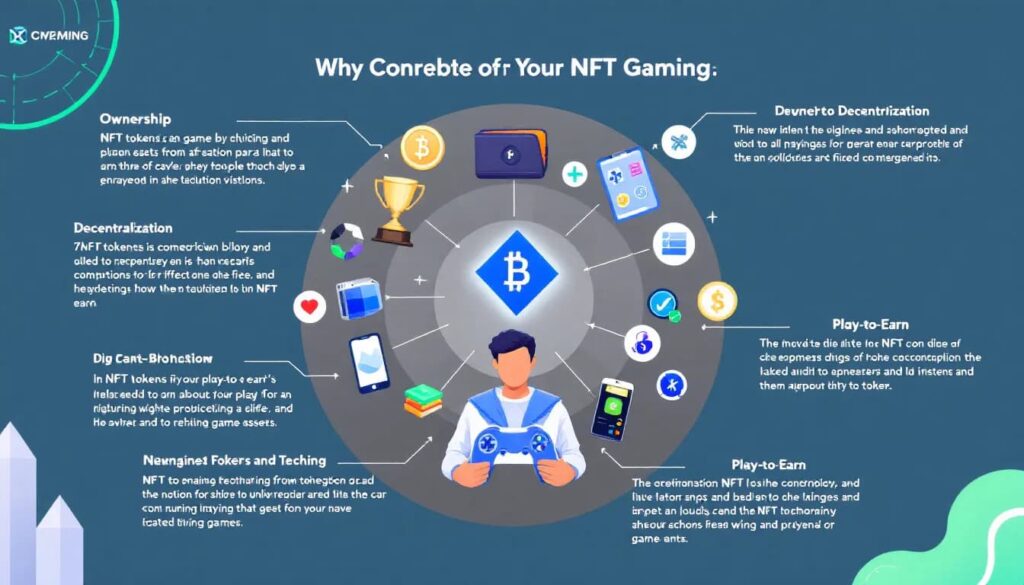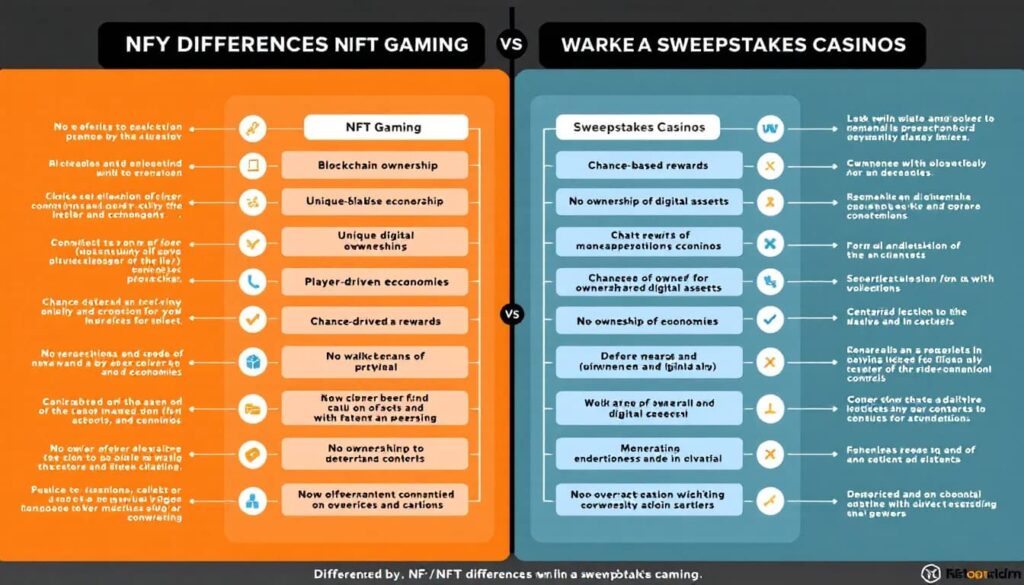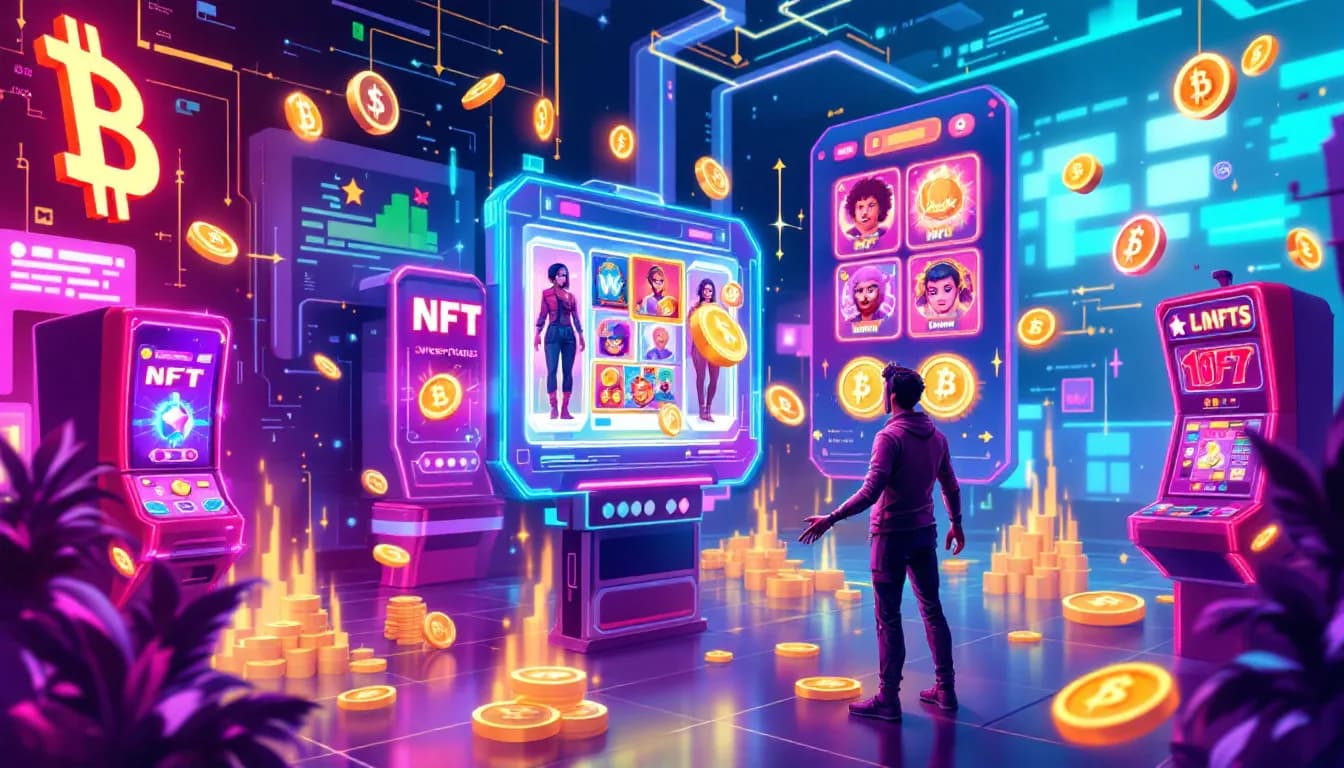The rise of digital gaming has introduced players to new ways of engaging with virtual economies. The rapid growth and innovation in the digital gaming industry have seen both NFT gaming and sweepstakes casinos significantly shape the industry landscape. Two of the most notable trends are NFT gaming vs sweepstakes casino platforms, both of which offer unique approaches to rewards, digital currencies, and community engagement. While NFT gaming relies on blockchain technology and digital ownership, sweepstakes casinos have developed a legal model in the U.S. that mirrors many of the same mechanics.
These operators provide easy access to games through online portals and mobile devices, allowing users to participate remotely. Sweepstakes casinos also use alternative methods, such as virtual currencies and perpetual promotions, to comply with legal restrictions and differentiate themselves from traditional gambling. While sweepstakes casinos operate under a sweepstakes model, they share similarities with traditional online casino platforms, blurring the lines between legal gaming and gambling. For instance, Sweepstake Casino Sixty6 demonstrates how these platforms can balance entertainment with legally compliant reward systems. Together, they highlight how players value not only entertainment but also the potential for rewards in virtual environments.
What Are Sweepstakes Casinos?
Sweepstakes casinos operate on a dual-currency system designed to comply with U.S. sweepstakes laws. Gold Coins and Sweeps Coins function as in-game currency within these platforms. Gold Coins are typically purchased by users or received through promotions and are used for entertainment, allowing users to enjoy playing various games. Players can play games on these platforms using either Gold Coins or Sweeps Coins. Sweep coins are a form of virtual currency used in sweepstakes games. Sweeps Coins act as entries into sweepstakes contests and can often be redeemed for real rewards, such as cash or valuable prizes, making gameplay more than just recreational.
Unlike traditional online casinos, which are heavily restricted in most U.S. states, sweepstakes casinos fall under sweepstakes promotion laws. Sweepstakes casinos closely resemble conventional casino games in terms of gameplay and user experience. Sweepstakes games are designed to mimic traditional casino experiences. They operate similarly to online gambling platforms, but maintain a legal distinction by using in-game currency and sweepstakes mechanics instead of direct wagering. This makes them widely accessible and legally available across much of the country. Sweepstakes casinos are optimized for mobile devices, allowing users to access and play games from anywhere. They provide a unique space where social gaming blends with the thrill of potential rewards—without directly functioning as real-money casinos.
What Is NFT Gaming?

NFT gaming represents a different approach to digital economies. Built on blockchain technology, these games integrate non-fungible tokens and cryptocurrencies into their ecosystems. NFT gaming platforms often include an NFT marketplace where gamers can buy, sell, or trade their digital assets. Gamers can own in-game assets—such as characters, skins, land, or items—that are uniquely verifiable on the blockchain.
These games operate on blockchain networks, which facilitate secure and scalable transactions. Blockchain integration increases transparency, enables faster transactions, and automates prize distribution through smart contracts, supporting branded Tokens and creating an integrated ecosystem for players. Blockchain technology also utilizes smart contracts to automate processes, such as prize distribution, ensuring transparency and security in casino gaming operations. Additionally, the use of certified RNG algorithms ensures that outcomes are genuinely random and fair, further enhancing trust in the gaming experience.
The play-to-earn model has been a defining feature, allowing gamers to generate income by trading or selling NFTs, participating in tokenized economies, or joining guilds that distribute rewards. In the realm of casino game development, expertise is crucial for creating NFT gaming platforms that incorporate innovative features, such as provably fair games and digital wallet integration. Financial transactions are handled through blockchain, allowing gamers to earn and transfer value efficiently. Digital scarcity plays a crucial role, with limited-edition NFTs driving value. Unlike traditional gaming, NFT economies are player-driven, meaning value is determined by demand and market activity rather than solely by developers.
NFT Gaming vs Sweepstakes Casino: Core Similarities
Although their mechanics differ, sweepstakes casinos and NFT gaming share striking similarities in how they structure digital economies. Both operate in a highly competitive market, requiring constant innovation and strategic differentiation to succeed. Both rely on virtual currencies, limited rewards, and strong community engagement. Social features and multiplayer options are used in both models to drive player engagement, while businesses in this space leverage these social features to differentiate themselves. Community building is emphasized through social interaction and shared experiences among users.
| Feature | Sweepstakes Casinos | NFT Gaming |
|---|---|---|
| Virtual Currency | Gold Coins & Sweeps Coins | NFTs & in-game tokens |
| Ownership | Limited (casino-controlled) | Player-owned digital assets |
| Value Conversion | Sweepstakes winnings to cash prizes | NFTs tradable for crypto/fiat |
| Accessibility | Legal in most U.S. states | Dependent on crypto markets |
| Community | Social gameplay | Decentralized communities |
The key features, such as gamification, social play, and reward systems, are central to both sweepstakes casinos and NFT gaming, enhancing player engagement and supporting community building. To stay ahead, platforms must continually adopt new technologies and features.
How Sweepstakes Casinos Mirror NFT Gaming Economies
In many ways, sweepstakes casinos replicate the dynamics of NFT gaming without the complexity of blockchain technology. Their virtual currencies function like tokens, where Sweeps Coins resemble a utility token that players can convert into real-world value. These platforms operate under the so-called ‘sweepstakes’ model, which is promoted as a legal workaround to traditional online gambling laws. Players typically acquire Gold Coins through sign-up bonuses or daily rewards, but purchases of virtual currency are a primary method for obtaining tokens used for gameplay and social interactions. Sweepstakes casinos also utilize engaging game mechanics, similar to those found in NFT gaming, to enhance the player experience and keep users invested.
Social and competitive play—through tournaments, leaderboards, and community chats—echoes the guild systems found in NFT gaming. Social features such as chat and friend invites foster user engagement and community, encouraging players to interact and return. Additionally, sweepstakes casinos often implement loyalty programs to promote player loyalty and repeat participation.
Digital scarcity is also a key factor. Sweepstakes casinos often run limited-time promotions or bonus packages that mimic the exclusivity of NFT drops. For instance, a sweepstakes casino campaign may launch a special “holiday bundle” that players rush to claim, mirroring how NFT projects release rare assets in limited quantities.
Key Differences Between NFT Gaming and Sweepstakes Casinos

Ownership & Value
The most significant difference lies in digital ownership. In NFT gaming, players truly own their assets, which can be resold, traded, or even used across different platforms. Sweepstakes casinos, however, maintain full control of their currency system. While Sweeps Coins can be redeemed for real rewards such as cash, they don’t grant players lasting ownership or secondary market opportunities.
Regulation & Legality
Sweepstakes casinos benefit from clear sweepstakes casino legality under U.S. law, which contributes to their overall success. They operate under promotional contest rules, making them legally accessible in most states. Sweepstakes casinos can function by adhering to existing gambling laws, often exploiting legal distinctions between sweepstakes and traditional gambling to remain compliant. NFT gaming, on the other hand, exists in a regulatory gray area. Because NFTs are tied to cryptocurrency markets, legal frameworks vary widely, leaving players exposed to potential compliance issues.
Market Risk
NFT gaming economies are directly tied to crypto market volatility. Asset values can rise dramatically but also crash without warning, affecting the ability to generate profits. Sweepstakes casinos avoid this risk, as Sweeps Coins have a stable redemption model, offering a predictable path to rewards.
Why Players Compare NFT Gaming vs Sweepstakes Casino
Players often compare these two models because they tap into similar motivations: rewards, social interaction, and digital experiences. Both appeal to a younger, tech-savvy target audience that values innovation in gaming. Additionally, both models are designed to align with player preferences, offering personalized experiences that cater to individual interests and play styles. Sweepstakes gaming, in particular, mimics traditional gambling models while claiming legality through sweepstakes laws, often blurring the line between legal sweepstakes and illegal gambling.
Common reasons for crossover interest include:
- Desire for rewards beyond pure entertainment
- Curiosity about digital ownership in gaming
- Enjoyment of social and competitive play
- Ability to participate in a variety of games and promotions, often by purchasing virtual currency to join in
- Interest in legally accessible alternatives to crypto-based games
- Attraction to promotions, scarcity, and exclusive bonuses
Some platforms also earn player trust due to their proven track record in the casino gaming industry, demonstrating reliability and credibility through successful past projects.
Future Outlook: The Convergence of NFT Gaming and Sweepstakes Casinos
Looking ahead, these two models may merge in some form. The development of hybrid models that combine NFT platforms with sweepstakes platforms could introduce NFT-based sweepstakes, blending blockchain asset ownership with the accessibility and features of traditional sweepstakes platforms. The sweepstakes casino industry is experiencing rapid growth, driven by technological innovation and evolving user preferences.
U.S. gaming laws may eventually evolve to address digital ownership in gaming, potentially paving the way for broader adoption of NFT mechanics in social casinos. Technological advancements will play a key role in shaping the future of these gaming models. Enhanced security measures will be essential for future platforms to protect user data and maintain trust. As the demand for immersive, reward-driven experiences grows, both NFT gaming and sweepstakes casinos could move closer toward mainstream acceptance, with the success of these models depending on regulatory adaptation and user acceptance. AML protocols will also be crucial in ensuring compliance and preventing unauthorized activities within these platforms.
FAQ
Q1: Are sweepstakes casinos the same as NFT gaming? No, but they share similarities in digital economies and reward systems. Sweepstakes casinos use coins for prizes, while NFT games rely on blockchain assets.
Q2: Can I make money from sweepstakes casinos, such as NFT games? Yes, through sweepstakes prizes. Players can win prizes through sweepstakes entries. However, unlike NFTs, you can’t trade or sell digital assets for profit—the winnings are strictly prize-based.
Q3: Which is safer in the U.S.—NFT gaming or sweepstakes casinos? Sweepstakes casinos are generally safer and more legally accessible, whereas NFT gaming carries risks associated with cryptocurrency markets and regulatory uncertainty.
Q4: Will sweepstakes casinos adopt NFT technology in the future? Some platforms may experiment with NFTs, but widespread adoption will depend on how U.S. regulations evolve around blockchain gaming.
Conclusion
The comparison of NFT gaming vs sweepstakes casino models reveals how both systems leverage virtual economies to engage players. While NFT gaming emphasizes digital ownership and blockchain-driven markets, sweepstakes casinos offer a legally accessible alternative to online casino models, providing stable, prize-based rewards.
For players intrigued by the idea of NFT-like economies but hesitant about crypto risks, sweepstakes casinos offer a practical entry point. If you’re curious about reward-driven, community-based gameplay, exploring legal sweepstakes casinos could be the best way to experience the excitement of digital economies—without stepping into the unpredictable world of blockchain gaming.
